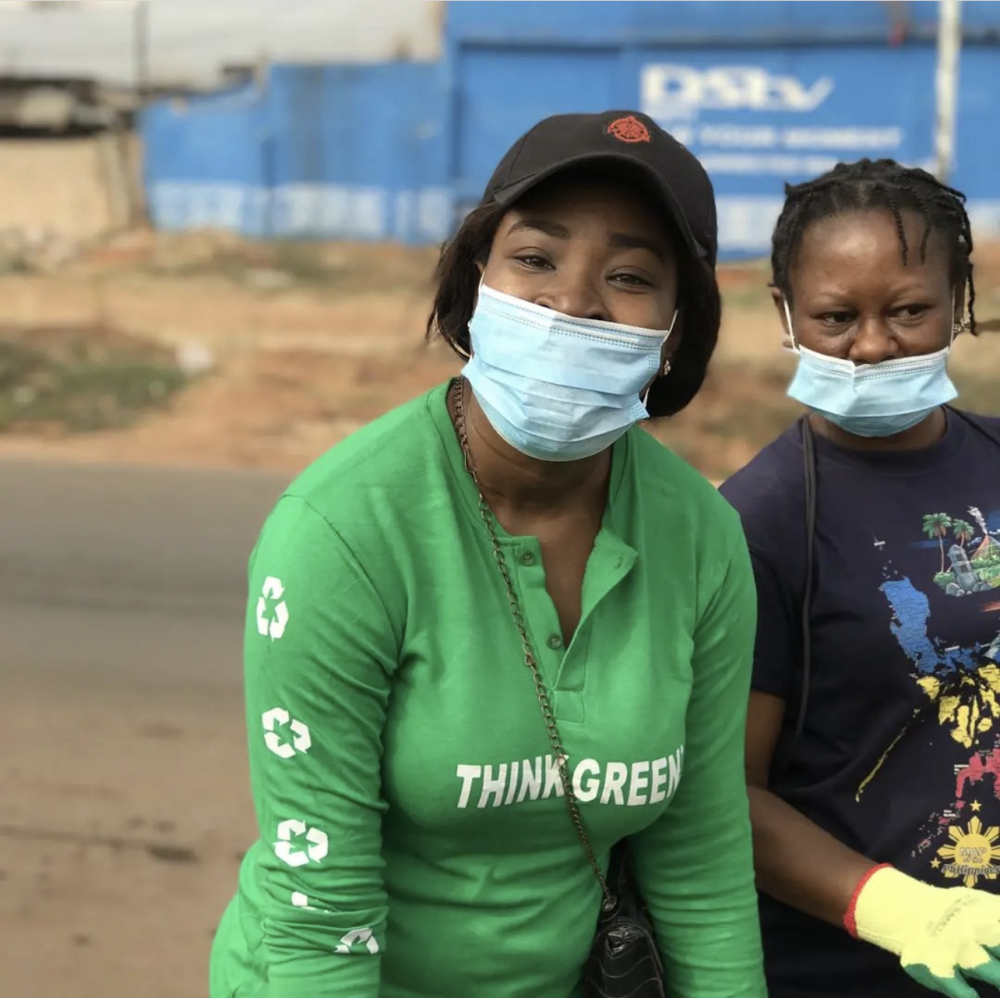How a young Catholic entrepreneur helps Nigerians see waste differently

Each year, more than 32 million tons of solid waste are generated in Nigeria. But only about 30 percent of it is collected. Most of the waste, which is mostly generated by households, traders, and industries, is unmanaged or poorly managed, putting millions of lives at risk.
A young Nigerian environmentalist, Ogechi Nwonye-Bernard, is hoping to change that. In 2017, Nwonye-Bernard founded Green Axis—a collaboration of young people committed to tackling waste disposal problems in Enugu, Nigeria.
“Improper waste disposal impacts human health in different ways,” said Nnadozie Okereke, an environmental scientist in Enugu. “For instance, people who live close to landfills are prone to diseases and lung infections. Improper waste disposal also contributes to water contamination.”
To reduce the impact of improper waste disposal, Okereke said, “recycling is the best approach and a good way to address improper waste disposal.” He added that when there is a system in place that encourages recycling, improper waste disposal will be reduced.
This is exactly what Green Axis is doing.
Since its launch, Nwonye-Bernard said Green Axis has received waste materials from more than 2,000 people. Field agents visit individuals in shops, offices, factories, and houses to collect waste, paying people the amount it’s worth in an effort to help them attach value to waste. The amount paid depends largely on the kind of waste material received. Funding comes from donations and grants.
When the program began, Green Axis field agents would dispose of the waste themselves, but after a few months they decided to gather waste in larger quantities, clean it,and send it to manufacturing companies for recycling.
Green Axis also carries out a monthly cleanup exercise in Enugu.
Nwonye-Bernard said that during this initiative, “we sensitize the people, and we explain the value of waste to them.” Furthermore, Green Axis has extended its advocacy online, using hashtags like #plasticfree, #CleanUpEnugu, and #enugurecycling to promote good sanitation practices in eastern Nigeria.
Nwonye-Bernard said her motivation to establish Green Axis began at St. Anthony of Padua and Our Lady of Apostles—the two Catholic schools she attended for her elementary and high school education. At Our Lady of Apostles, Nwonye-Bernard said the nuns at the school regularly mobilized the students around environmental issues.
“Dumping waste improperly is disrespect to the environment. And I am happy my Catholic faith and that spirit from the Catholic schools I attended influenced me,” Nwonye-Bernard said.
With support from individuals and organizations such as Connected Development and ShareYourself, Green Axis has continued to help people see waste differently.
In 2018, Green Axis beganusing recycled plastic to make school furniture like tables and chairs.Nwonye-Bernard is encouraged by the pace of growth.
“As environmentalists, rather than allow a community to cut down trees to make chairs, we now make chairs for them,” she said.
She added that in addition to improving the lives of people in the community, the project also discourages deforestation, a major contributor to human-caused climate change.
Despite this, Nwonye-Bernard said Green Axis continues to face challenges, chief of which is lean financial resources. But she is encouraged: “We just need to reach out to more rural areas to reorient the people,” she said. “It’s a matter of time.”



